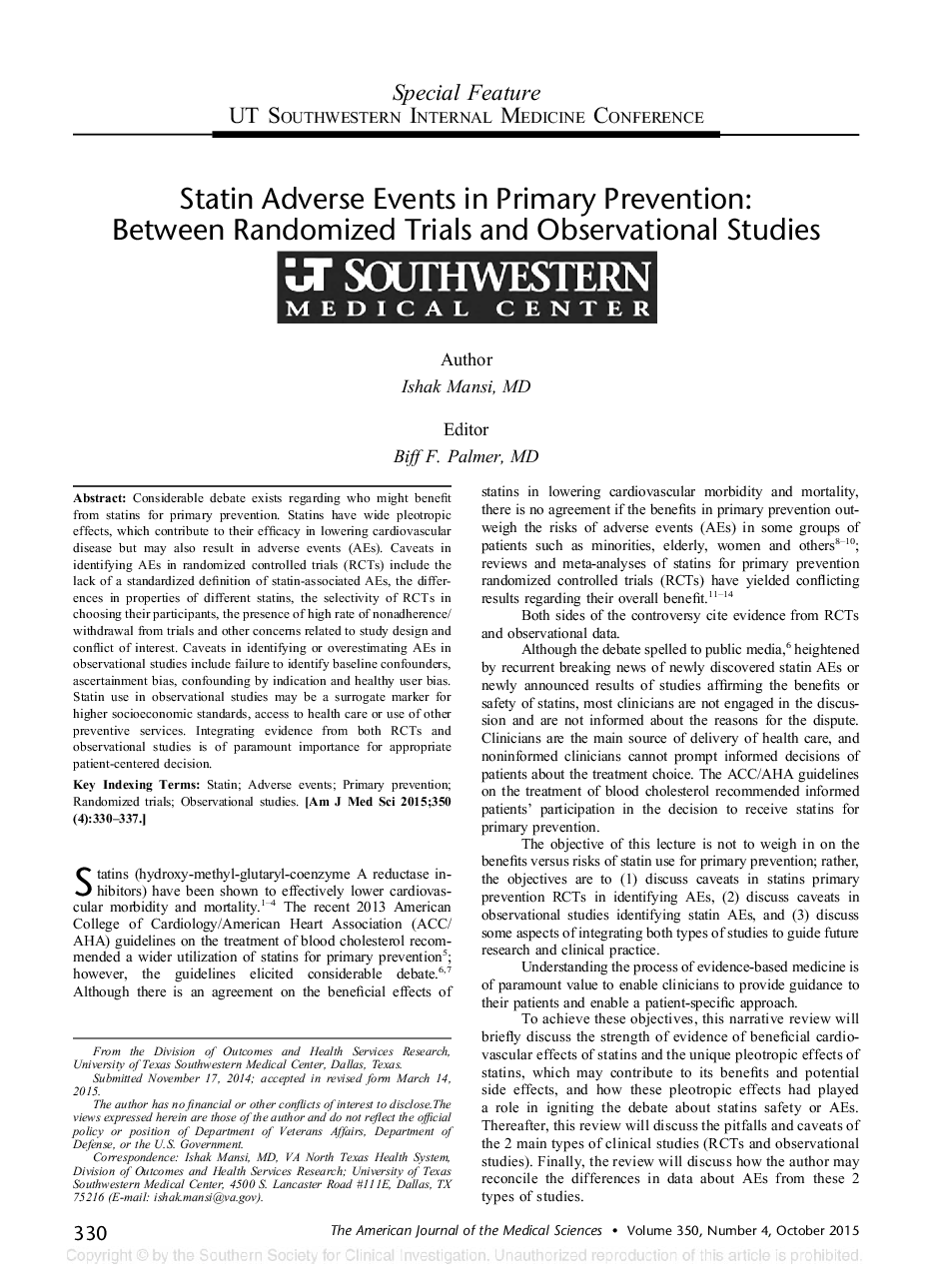| Article ID | Journal | Published Year | Pages | File Type |
|---|---|---|---|---|
| 2863312 | The American Journal of the Medical Sciences | 2015 | 8 Pages |
:Considerable debate exists regarding who might benefit from statins for primary prevention. Statins have wide pleotropic effects, which contribute to their efficacy in lowering cardiovascular disease but may also result in adverse events (AEs). Caveats in identifying AEs in randomized controlled trials (RCTs) include the lack of a standardized definition of statin-associated AEs, the differences in properties of different statins, the selectivity of RCTs in choosing their participants, the presence of high rate of nonadherence/withdrawal from trials and other concerns related to study design and conflict of interest. Caveats in identifying or overestimating AEs in observational studies include failure to identify baseline confounders, ascertainment bias, confounding by indication and healthy user bias. Statin use in observational studies may be a surrogate marker for higher socioeconomic standards, access to health care or use of other preventive services. Integrating evidence from both RCTs and observational studies is of paramount importance for appropriate patient-centered decision.
